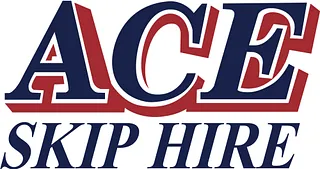20/02/2025 0 Comments
Understanding the Diverse World of Skip Hire
Skip hire has become an essential service within the waste management industry, providing an efficient solution for both residential and commercial projects. The flexibility and convenience offered by various skip sizes are particularly important, catering to the unique needs of individuals and businesses. Whether you are undertaking a home renovation or managing a construction site, understanding the different options available within the skip hire sector can greatly facilitate your waste disposal process.
Types of Skips
The skip hire industry presents a myriad of sizes, each designed to accommodate specific volumes of waste. For smaller projects, mini skips, often referred to by their designated sizes such as the 2-yard and 4-yard models, are perfect for household clear-outs, garden renovations, or minor construction works. These compact containers offer a practical solution without overwhelming your premises.
As projects scale in size, the need for larger skips becomes apparent. The 6-yard and 10-yard skips are commonly chosen for medium to large jobs, such as extensive home renovations, property clearances, or commercial projects. Their increased capacity allows for the disposal of significant waste volumes, promoting a tidy and safe working environment. Companies specialising in skip hire generally offer an array of these skips to accommodate diverse requirements.
Cost Considerations
When contemplating a skip hire, it's essential to consider the associated costs. Pricing can vary significantly based on the skip size, duration of hire, and type of waste being disposed of. Mini skip hire costs are often more affordable for small-scale projects, making them appealing for individuals managing DIY tasks or smaller clear-outs. In contrast, larger skips like the 10-yard model may present higher costs but are invaluable for more extensive waste disposal needs.
Waste Types and Regulations
The regulations surrounding waste disposal in skip hire are crucial to ensure compliance and sustainability. Different types of waste, including general refuse, construction debris, and recyclable materials, each have specific guidelines governing their disposal. Understanding these regulations helps facilitate responsible rubbish removal and promotes environmentally friendly practices. Many skip hire companies provide insights into acceptable waste types, ensuring your hire experience adheres to local regulations.
Benefits of Using Skip Hire Services
Engaging in skip hire flows far beyond merely hiring a bin. It contributes significantly to environmental responsibility and efficient waste management. By opting for a skip company, you engage in a streamlined process, where collection and disposal are handled by professionals trained to deal with varied waste types correctly. This not only saves time but also reduces the risk associated with improper waste disposal.
Moreover, the convenience of having a skip placed on-site eliminates the need for multiple trips to the local tip, thereby saving both time and fuel. This efficiency is particularly beneficial for those managing large-scale projects with tight deadlines, allowing operations to continue without unnecessary interruptions.
Choosing the Right Skip for Your Needs
Selecting the appropriate skip hire option requires assessing the nature of your project. Consideration should be given to both the expected volume of waste and the available space for placing the skip. Consulting with skip hire professionals can offer valuable insights, guiding you towards the most suitable option that meets your project's requirements while adhering to budget constraints.

Comments
Leave a comment